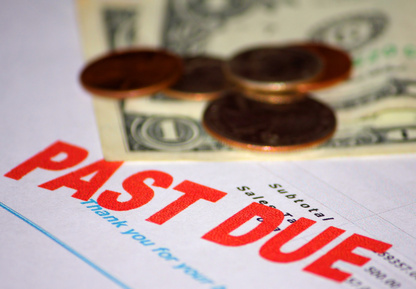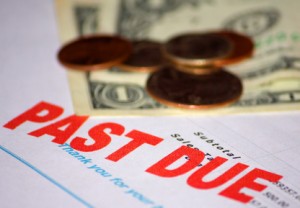 When filing for a Chapter 7 bankruptcy, many debtors are concerned about the status of large or luxury purchases they may have made in the weeks or months before filing.
When filing for a Chapter 7 bankruptcy, many debtors are concerned about the status of large or luxury purchases they may have made in the weeks or months before filing.
These purchases may have been for expensive jewelry, cars, boats, or other items. Whether these items can be retained by the debtor after filing for bankruptcy depends on the nature of the item and how and when it was purchased.
Credit Card Purchases
The trustee in a Chapter 7 bankruptcy will look to any major purchases you made in the past 90 days or even beyond in some cases. Also, a creditor may challenge your use of their credit card if it can show that your actions indicated an intent to not repay them.
For example, if you bought a $2,500 bicycle on your MasterCard three months ago and made no payments before filing, the creditor is very likely to file an objection to the discharge of that particular debt. You will be accused of intending to run the debt through bankruptcy at the time it was incurred. “Fraud” is the term the bankruptcy code uses to describe this behavior. The creditor’s objection will be likely to prevail.
For some large items bought on a particular credit card, you may have unwittingly signed a purchase money security agreement. In this situation, the creditor could claim title to the item and demand you either return it, pay the current market value of it, or make monthly payments.
Reaffirmation and Redemption
For other expensive purchases made with cash, you may or may not be able to retain the item. Your assets and debts make up your estate. According to law, you have certain assets that are exempt from seizure by the trustee and assets that are nonexempt. Your exempt property is usually protected only up to a certain amount. For example, most states allow a limited homestead exemption regarding your equity. You can also exempt one automobile valued up to a certain amount.
Automobiles and boats
If you just purchased an expensive car for cash, it is unlikely you can keep the vehicle since its market value will likely exceed the exempt amount. Under the Minnesota exemptions, you can claim one car of a value up to $4,600; or if you choose to use the federal exemptions, which are also available in Minnesota, you can claim up to $3,450.00 of equity in a vehicle as exempt. So with the exemption being lower, why would you choose the federal exemptions? Because the federal exemptions also include a wild card exemption which you can use for anything up to $11,975. Excess equity in a car, or anything else that doesn’t fit in one of the specific categories, can be claimed as exempt under the wild card. If you have assets that you are unable to exempt, however, you can expect the trustee to seize them unless you have the ability to buy the assets back from the trustee.
If you have a loan on the car, some of the lenders will require that you reaffirm the debt with a reaffirmation agreement as a condition of allowing you to keep the vehicle. Most of the lenders, however, will let you just keep making the payments without a reaffirmation – a procedure called retain and pay. A reaffirmation agreement is a contract which reinstates the loan as if the bankruptcy never happened. Such agreements are to be avoided if at all possible. Since 2j005 the bankruptcy code has not included retain and pay as one of the options, but most lenders will do it anyway. Another option, one which is still in the bankruptcy code, is redemption. Redemption means paying in one lump sum – the full value of the vehicle or other security. There are a few lenders out there who will finance redemptions, at a very high interest rate, but in general this is rare.
There are no specific exemptions for boats. If the boat is a very modest one, you might be able to exempt it with the wild card. Unless you can use the wild card, the trustee will likely sell any boat, and that money will go to the trustee and the creditors. The best thing to do with a boat is usually to sell it before filing the bankruptcy – for fair market value of course. You can use the proceeds to hire your lawyer.
Jewelry
Most states have a jewelry exemption. Under Minnesota statutes the only jewelry exemption is for wedding rings – up to $2,817.50. The federal exemptions exempt $1,450 of any kind of jewelry. Your attorney will ask to determine the liquidation value of the jewelry, or how much you could get if you sold it. A formal appraisal may be needed. In some cases, the liquidation value is considerably less than what you paid for it and it may fit within an exemption.
If you bought the jewelry on credit and the creditor has a perfected security interest in the item, it could demand you return it or continue making payments. Taking legal action against you and then selling the item is generally an expensive process. In many cases, the creditor may agree to work out a payment arrangement or you could pay the redemption value in one lump sum. Typically a payment plan would be written up as a reaffirmation agreement.
Reaffirmation agreements have to be filed with the court prior to the date of discharge for them to be legally enforceable. This means the window during which they can be done is quite narrow.
If you have non-exempt jewelry, as with any asset that is non exempt, you can negotiate with the trustee to buy back the jewelry, if no security interest exists on it, once you determine its resale value.
In any of these scenarios, it is best to consult with a bankruptcy attorney before you file for Chapter 7 protection and to see if a Chapter 13 is more applicable or some other financial option is available. The bankruptcy code is a mine field of “gotchas,” and it’s not a place you want to go without a lawyer.
The author of this article resides in Minnesota, and the references to exemption laws are intended only to apply to Minnesota residents. The exemption scenario is different in every state; and if you are not from Minnesota, it could be very different in the state where you live.
This article is intended for general information purposes only and it not intended to be legal advice






















